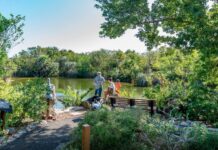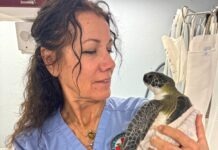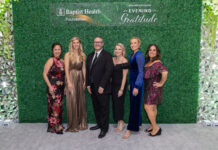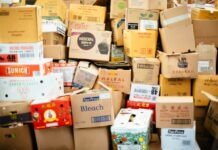
What’s the best thing to do with food waste? Feed the worms.
That’s precisely what Michael Sessler’s science students at Stanley Switlik Elementary School have been doing — and the results are blooming.
In October, the school launched a worm composting project to tackle food waste from the cafeteria. The goal is to reduce what ends up in the landfill and show students how waste can be recycled into something extraordinary.
By January, the students had a rich supply of worm castings — also known as worm poop — ready to harvest. These nutrient-packed castings were added to the school’s raised garden beds, helping grow a vibrant mix of vegetables and herbs.
“Worm castings are like gold for plants,” said Sessler. “They’re full of nutrients that help our garden thrive — and it all came from food we didn’t throw away.”
This hands-on science project is an excellent example of a circular food waste cycle, in which waste is transformed into a valuable resource instead of being sent to the landfill.
From worms to gardens … to pickles
The garden is thriving, and the students are harvesting more than science skills. With their fresh cucumbers growing, the class is taking their project to the next level: making pickles.
Students are learning how compost supports healthy plants and how to preserve food, reduce waste and enjoy the tasty rewards of their hard work.
What can you feed the worms?
Want to try worm composting at home or in your classroom? Feed your worms:
- Raw fruit and vegetable scraps.
- Egg shells.
- Coffee grounds and filters.
- Tea bags.
Avoid feeding them meat, dairy or oily foods — those can upset the worm bin.
Don’t send food waste to the landfill
Composting with worms doesn’t just teach kids about science; it also builds environmental awareness and encourages habits that support a healthier planet.
So next time you peel a banana or crack an egg, think like a Switlik student: Feed the worms — and grow something beautiful. And maybe … even make pickles!
Keep an eye on the Monroe County events calendar for composting workshops throughout the Keys. The next event, a DIY worm composting bin workshop, is set for Saturday, June 14 from 11 a.m. to 1 p.m. at the Banyan Tree in Islamorada. Learn how compost supports a healthy garden — organically — while you shop.




















